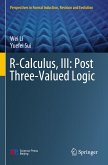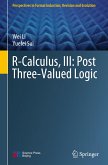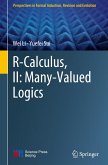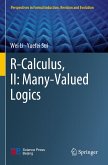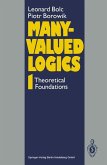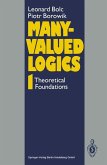Multi-valued and fuzzy logics provide mathematical and computational tools for handling imperfect information and decision-making with rational collective reasoning and irrational individual judgements.
The suggested implementation of multi-valued logics is based on the uninorm and absorbing norm with generating functions defined by probability distributions. Natural extensions of these logics result in non-commutative and non-distributive logics. In addition to Boolean truth values, these logics handle subjective truth and false values and model irrational decisions. Dynamics of decision-making are specified by the subjective Markov process and learning - by neural network with extended Tsetlin neurons. Application of the suggested methods is illustrated by modelling of irrational economic decisions and biased reasoning in the wisdom-of-the-crowd method, and by control of mobile robots and navigation of their groups.
Topics and features:
Bridges the gap between fuzzy and probability methodsIncludes examples in the field of machine-learning and robots' controlDefines formal models of subjective judgements and decision-makingPresents practical techniques for solving non-probabilistic decision-making problemsInitiates further research in non-commutative and non-distributive logics
The book forms a basis for theoretical studies and practice of decision-making under uncertainty and will be useful for computer scientists and mathematicians interested in multi-valued and fuzzy logic, as well as for engineers working in the field of data mining and data analysis.
The suggested implementation of multi-valued logics is based on the uninorm and absorbing norm with generating functions defined by probability distributions. Natural extensions of these logics result in non-commutative and non-distributive logics. In addition to Boolean truth values, these logics handle subjective truth and false values and model irrational decisions. Dynamics of decision-making are specified by the subjective Markov process and learning - by neural network with extended Tsetlin neurons. Application of the suggested methods is illustrated by modelling of irrational economic decisions and biased reasoning in the wisdom-of-the-crowd method, and by control of mobile robots and navigation of their groups.
Topics and features:
Bridges the gap between fuzzy and probability methodsIncludes examples in the field of machine-learning and robots' controlDefines formal models of subjective judgements and decision-makingPresents practical techniques for solving non-probabilistic decision-making problemsInitiates further research in non-commutative and non-distributive logics
The book forms a basis for theoretical studies and practice of decision-making under uncertainty and will be useful for computer scientists and mathematicians interested in multi-valued and fuzzy logic, as well as for engineers working in the field of data mining and data analysis.



